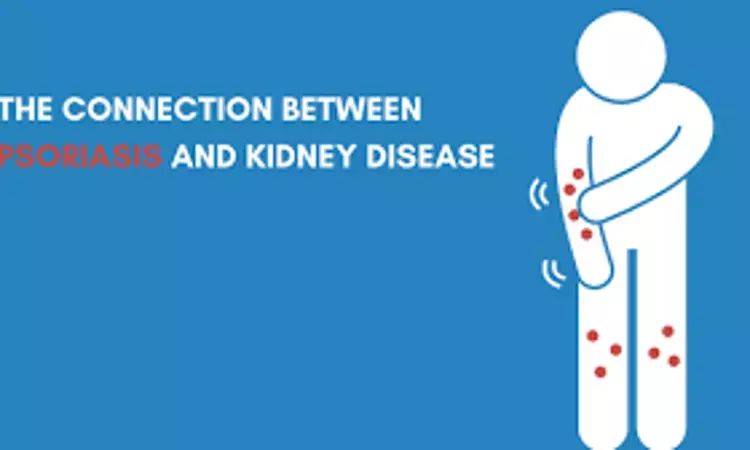- Home
- Medical news & Guidelines
- Anesthesiology
- Cardiology and CTVS
- Critical Care
- Dentistry
- Dermatology
- Diabetes and Endocrinology
- ENT
- Gastroenterology
- Medicine
- Nephrology
- Neurology
- Obstretics-Gynaecology
- Oncology
- Ophthalmology
- Orthopaedics
- Pediatrics-Neonatology
- Psychiatry
- Pulmonology
- Radiology
- Surgery
- Urology
- Laboratory Medicine
- Diet
- Nursing
- Paramedical
- Physiotherapy
- Health news
- Fact Check
- Bone Health Fact Check
- Brain Health Fact Check
- Cancer Related Fact Check
- Child Care Fact Check
- Dental and oral health fact check
- Diabetes and metabolic health fact check
- Diet and Nutrition Fact Check
- Eye and ENT Care Fact Check
- Fitness fact check
- Gut health fact check
- Heart health fact check
- Kidney health fact check
- Medical education fact check
- Men's health fact check
- Respiratory fact check
- Skin and hair care fact check
- Vaccine and Immunization fact check
- Women's health fact check
- AYUSH
- State News
- Andaman and Nicobar Islands
- Andhra Pradesh
- Arunachal Pradesh
- Assam
- Bihar
- Chandigarh
- Chattisgarh
- Dadra and Nagar Haveli
- Daman and Diu
- Delhi
- Goa
- Gujarat
- Haryana
- Himachal Pradesh
- Jammu & Kashmir
- Jharkhand
- Karnataka
- Kerala
- Ladakh
- Lakshadweep
- Madhya Pradesh
- Maharashtra
- Manipur
- Meghalaya
- Mizoram
- Nagaland
- Odisha
- Puducherry
- Punjab
- Rajasthan
- Sikkim
- Tamil Nadu
- Telangana
- Tripura
- Uttar Pradesh
- Uttrakhand
- West Bengal
- Medical Education
- Industry
Biologic Therapy improves Renal Function in Psoriasis: Study

Biologic therapy may significantly improve renal function in patients with psoriasis, according to a recent study published in Dermatologic Therapy.
Psoriasis is a chronic inflammatory dermatosis affecting 2%–3% of the general population. Psoriasis is thought to be an immune system problem. Triggers include infections, stress and cold. The most common symptom is a rash on the skin, but sometimes the rash involves the nails or joints. Treatment aims to remove scales and stop skin cells from growing so quickly. Topical ointments, light therapy and medication can offer relief. The link between psoriasis and renal dysfunction has been investigated, demonstrating common pro-inflammatory pathogenesis.
This study is aimed at evaluating renal function in patients with moderate-to-severe chronic plaque psoriasis treated with biological therapy. A group of researchers analyzed 92 patients, correlating PASI and serum creatinine levels at baseline, after 6 months and after 1 year of continuous treatment with biological therapy. Data were analyzed using paired t-test and the linear mixed model for PASI and serum creatinine levels correlation, whereas the analysis of variances (ANOVA) was used for creatinine levels assessment between the baseline, the 6-months and, 1-year later evaluation.
The results of the study are:
The researchers observed a significant mean decrease in comparing serum creatinine levels after 1 year of biological therapy (p < 0.001). Interestingly, PASI reduction is correlated with creatinine decrease, and the renal function improvement is greater when complete psoriasis remission is attained.
Thus, the researchers concluded that their data suggest that a drop in systemic inflammation, secondary to biological therapy administration, might improve renal function. Future research is needed to confirm and expand our findings.
Reference:
Veronesi G, Guglielmo A, Gardini A, et al. Biological therapy in patients with psoriasis: What we know about the effects on renal function. Dermatologic Therapy. Published online November 13, 2021.
https://onlinelibrary.wiley.com/doi/10.1111/dth.15202
Dr. Shravani Dali has completed her BDS from Pravara institute of medical sciences, loni. Following which she extensively worked in the healthcare sector for 2+ years. She has been actively involved in writing blogs in field of health and wellness. Currently she is pursuing her Masters of public health-health administration from Tata institute of social sciences. She can be contacted at editorial@medicaldialogues.in.
Dr Kamal Kant Kohli-MBBS, DTCD- a chest specialist with more than 30 years of practice and a flair for writing clinical articles, Dr Kamal Kant Kohli joined Medical Dialogues as a Chief Editor of Medical News. Besides writing articles, as an editor, he proofreads and verifies all the medical content published on Medical Dialogues including those coming from journals, studies,medical conferences,guidelines etc. Email: drkohli@medicaldialogues.in. Contact no. 011-43720751


